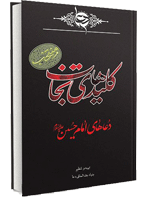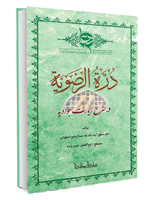- Prophet Muhammad (P.B.U.H&HF): Whenever one of you is needy and brings that to other people, he will not be satisfied. and Whenever someone is needy and brings that to Lord, he shall give him what he wants. sooner or later.
- Imam Sadiq (As.): Whenever you had tenderness in your heart, Pray. because your heart doesn't get tender unless it's pure.
- I told to Imam Baqir (A.S): “What is the meaning of “truly, Ibrahim was awwah and patient”? He replied: “Awwah means (the one who is) praying (to) and wailing (for God) a lot.””
- “Two people, who have acted alike, enter the heaven, but one of them sees the other one in a higher place. Then, he says: O’ Lord! How come has he a superior place in comparison to me while we acted alike? God the Almighty replies: “because he asked Me (whatever he needed) and you did not do that”.
- “The most knowledgeable person to God is the one who asks more from Him”
- “Whoever prays a lot, the angels say: This voice is familiar (to us) and this is the supplication which is accepted and this is the need which is provided”
-
The Holy Prophet (peace be upon him and his Household):
-
وَ لَوْ عَرَفْتُمُ اللَّهَ حَقَّ مَعْرِفَتِهِ لَزَالَتِ الْجِبَالُ بِدُعَائِكُم
If you knew god the way you should’ve known, Mountains definitely will be moved by your supplications. - Crying out of fear of God is the key to his mercy, it’s a sign for his acceptance and it’s a door to answering [supplications]
- Pray to God and believe in his answeres. But understand that God won't accept prays from an unwitting oblivious heart.
In the Presence of the Beloved
Introduction For "In the Presence of the Beloved"
----------------------
Title: In the Presence of the Beloved
Writer: Muhammad Taqi Misbah Yazdi
Translator: Mansoor L. Limba
Publisher: ABWA Publishing and Printing Center

---------------------------------
“Say, ‘Why should my Lord care for you, were it not for your supplication?”
The simplest and most natural relationship of man with God is to remember Him. This affects his heart and soul. Occasionally, the effect of this remembrance is manifested by the tongue.
Muhammad Taqi Misbah Yazdi

We live in a world in which the fight for the material is omnipresent. We are fighting to earn everything material but no matter how much we get from that we are never satisfied or happy due to the fact that we always want something that we do not exactly know what it is but the truth is that it causes us to feel empty and deserted. Like we’ve been abandoned in this world. This emptiness can only be filled by seeking Allah swt.
this book in front of you is a collection of lectures about dua delivered by Ayatollah Muhammad Taqi Misbah Yazdi. It includes four parts. The first part concentrates on the importance of supplication in general. The other three parts deal in detail about Dua al-Iftitah which is for Ramadan month, Dua Abu Hamza at-Thumali from imam al-sajjad and Dua Makarim al-Akhlaq.
All of these incredible supplications contain very beautiful and meaningful concepts. Such as love, humanity, God’s forgiveness and the way to wash our sins and free ourselves from this material world so it needs to be said that this books and duas in it are going to help us see ourselves a little bit more clear and free ourselves from the things that our prisoning us and punishing us and making us suffer.
In this book we are going to answer these questions:
1.What is the essence of supplication?
2.Is supplication an independent reason for the acceptance of requests, or similar to other natural or common reasons?
3. Does the effect of supplication lie only in its content, as claimed by some people, in the sense that it has an inspirational dimension which prompts a person to move towards his goal?
4.does it have other effects?
5.God has promised in the Qur’an to hear the supplication of His servants, then why are most of our prayers not granted?
6. Does supplication have some etiquettes and conditions? If yes, what then are those conditions?
7.What is meant by “arrogance in supplication”, which has been prohibited by the Qur’an?
It’s very important for every Muslim to be familiar with these questions and their answers. So it’s recommended to read this book and help us to find answers to our questions.
Parts of this book:
“Life in the world is such that consciously or unconsciously man’s attention is drawn to material things. But the truth is that man is created to have proximity to God [taqarrub], and he must utilize everything he has to attain this goal. One of the best ways is to allocate a specific time everyday to the sincere remembrance of God. This remembrance is illustriously manifested in prayer. In the ritual prayer [salah], there are supplications in the state of qunut and other positions, besides those to be recited before and after the daily obligatory prayers as mentioned in the traditions [ahadith]. In fact, the ritual prayer itself can be considered a “supplication”. As stated, salah literally means supplication.”
“By standing before God and paying attention to His Greatness and Majesty and at the same time taking into account his own insignificance and helplessness, the supplicant expresses his absolute poverty to God. In so doing, he sees himself not in need of any creature but Him. So, supplication means humbleness accompanied by contentment and high spirit.”
“Fear of God is also one of the divine blessings, but our ignorance hinders us from understanding this blessing. When God threatens us and shows us some dangers, He actually shows us the ill effects of wicked acts—effects which will impinge on us before anybody else.”
Contents:
- Preface
- Part 1: Introduction, Discussions about Supplication
• What is the essence of supplication [du‘a’]?
• The independent effect of supplication
• Is supplication in conflict with the law of causation?
• Does supplication make people lazy and lax?
• Effects of supplication
• Conditions for the acceptance of supplications
• God’s Mastership [wilayah] over the faithful
• The essential desirability of supplication
• Etiquettes of supplication
• Types of supplicants
• Motives behind supplication
• The meaning of arrogance in supplication
• Transmitted supplications
• Need to reflect on religious laws and repercussions of disrespectful acts - Part 2: Commentary on Du‘a’ al-Iftitah
• First Discourse: Ramadan
• Second Discourse: The Essence of Supplication
• Third Discourse: Sincerity
• Fourth Discourse: Hope
• Fifth Discourse: Waiting for the Advent of Imam al-Mahdi (‘atfs)
• Sixth Discourse: The Imam of the Age (‘atfs) - Part 3: Commentary on Du‘a’ Abu Ḥamzah al-Thumali
• First Discourse: The Supplication of Abu Ḥamzah al-Thumali
• Second Discourse: Paying Attention to the Attributes of Allah
• Third Discourse: The Divine Presence
• Fourth Discourse: Fear and Hope
• Fifth Discourse: Remembrance of Allah
• Sixth Discourse: The Heart
• Seventh Discourse: Degrees of Remembrance of Allah
• Eighth Discourse: Provisions for the Hereafter
• Ninth Discourse: Faith - Part 4: Commentary on Du‘a’ Makarim al-Akhlaq
• First Discourse: Invoking Blessings on the Apostle (S)
• Second Discourse: Human Responsibility
• Third Discourse: Good and Evil
• Fourth Discourse: The Night of Ordainment






